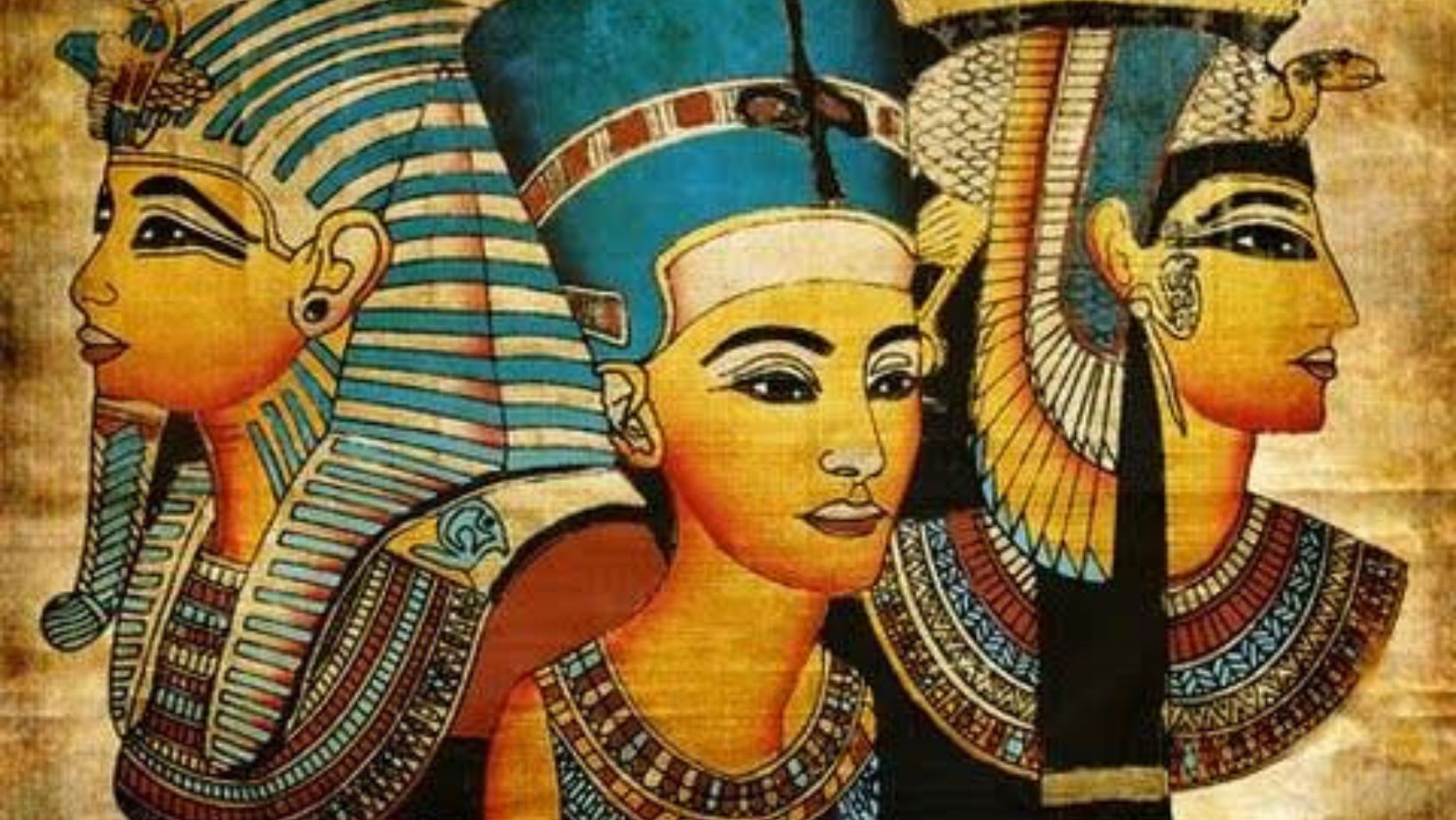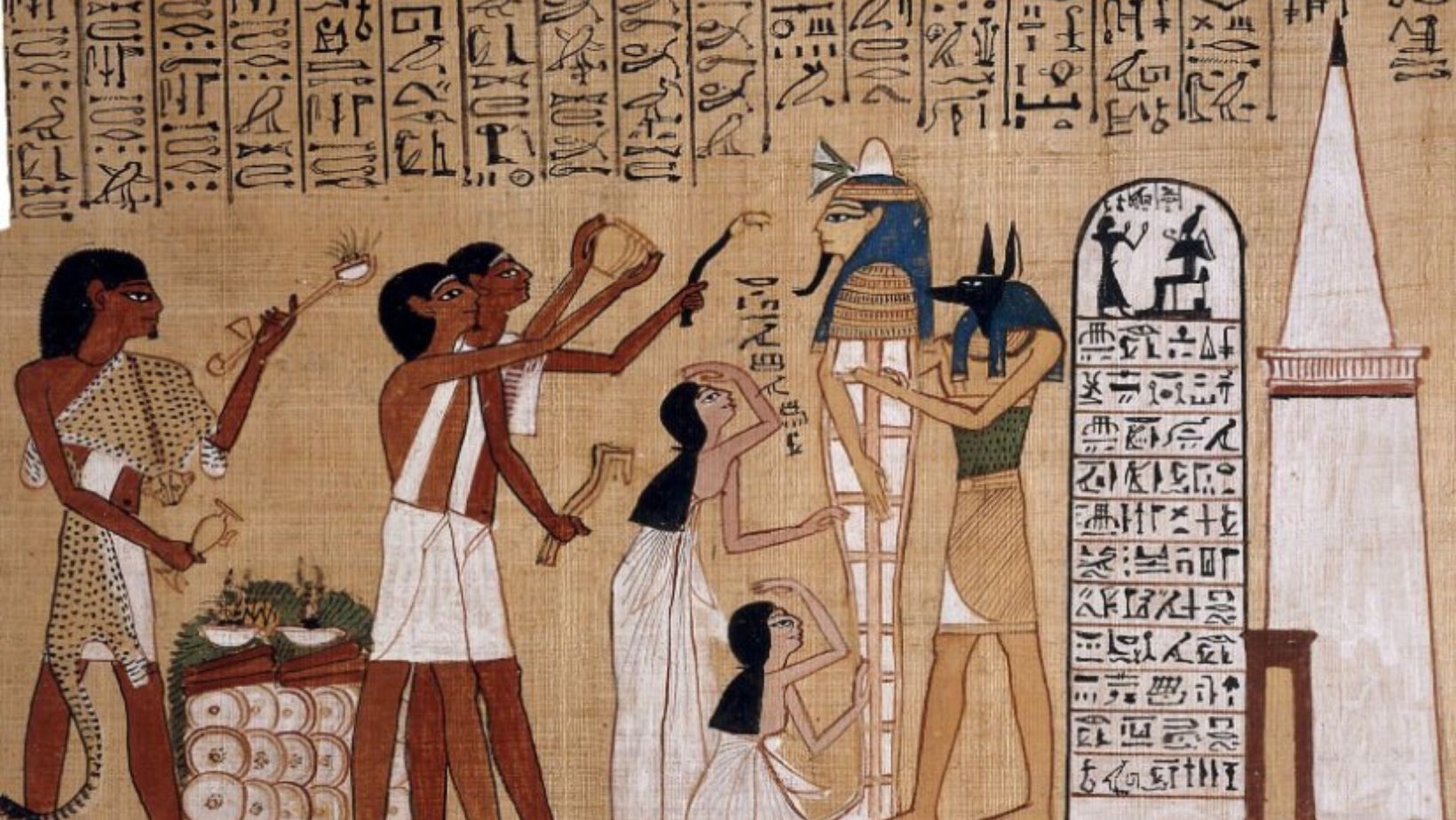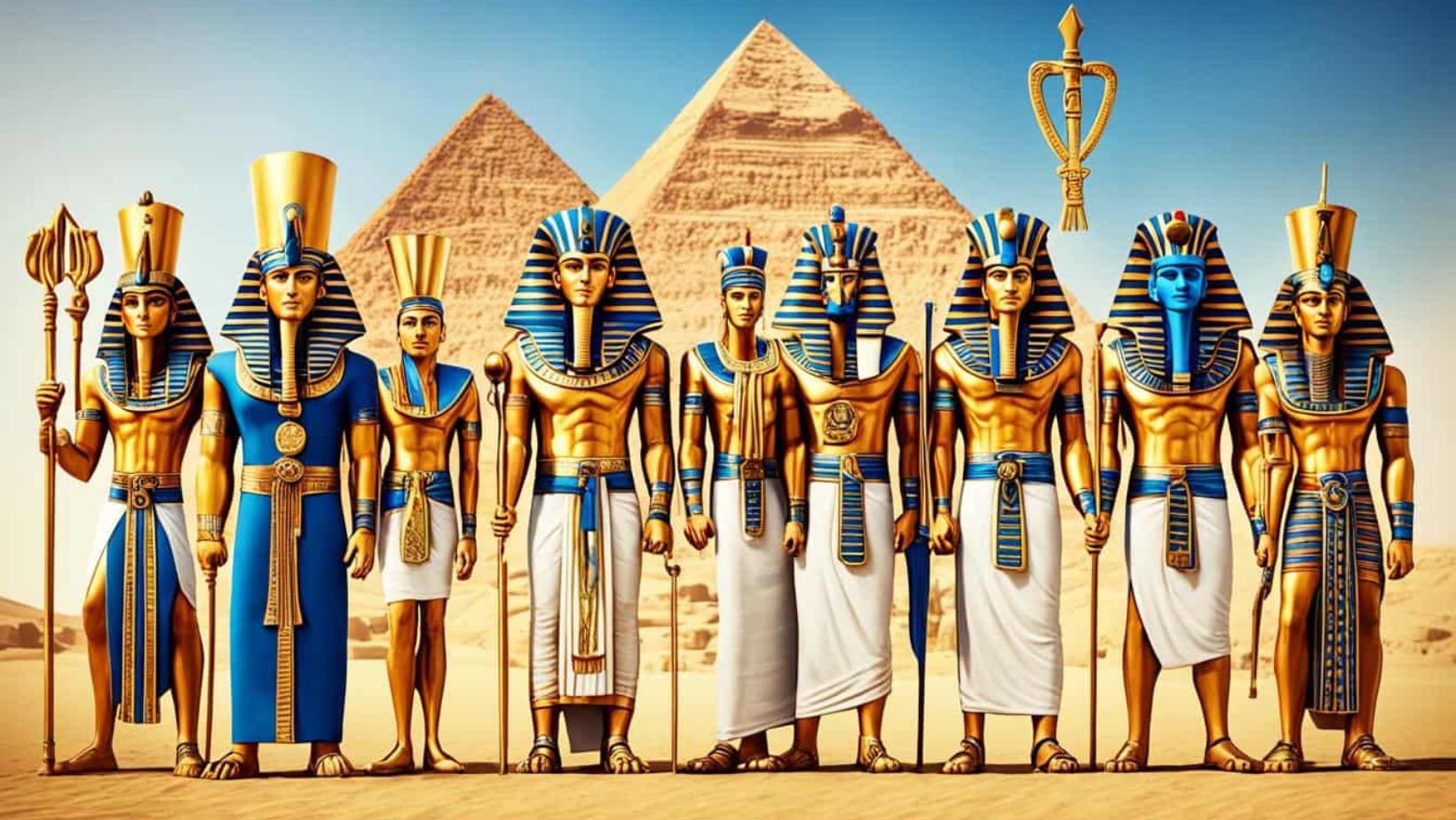Leadership in ancient Egypt was more than just a title; it embodied a divine connection between the rulers and the gods. Pharaohs and kings held immense power, shaping the lives of their people and the course of history. They were seen as gods on earth, responsible for maintaining order and prosperity. Their decisions influenced everything from agriculture to monumental architecture. Understanding the role of these leaders helps us appreciate the complexity of ancient Egyptian society and its enduring legacy. Join us as we explore the fascinating world of pharaohs and kings and their impact on civilization.
The Concept of Divine Kingship: Pharaohs and Kings

Pharaohs were viewed as divine rulers in ancient Egypt. They were believed to be the earthly embodiment of the god Horus and the son of the sun god Ra. This connection to the divine granted them authority over both the spiritual and political realms. Pharaohs were responsible for upholding maat, the principle of order, justice, and balance in the universe.
The relationship between religion and political power was deeply intertwined. Pharaohs performed religious rituals to secure the favor of the gods and ensure the Nile’s annual flooding, which was vital for agriculture. Temples were built in their honor, reinforcing their divine status among the people.
Additionally, the pharaoh’s role as a mediator bet
ween the gods and the people solidified their power. This divine kingship justified their absolute rule and made rebellion against them a sin. Thus, the concept of divine kingship was essential in maintaining the stability and longevity of ancient Egyptian civilization.
The Titles and Roles of Pharaohs: Pharaohs and Kings
Pharaohs held various titles that reflected their power and responsibilities. One of the most significant titles was “King of Upper and Lower Egypt,” symbolizing their rule over the entire kingdom. They were also referred to as “Lord of the Two Lands,” emphasizing their dual authority. Other titles included “High Priest of Every Temple,” highlighting their religious duties. Pharaohs and Kings
The responsibilities of a pharaoh were extensive and vital for the nation. They were seen as the chief military leader, responsible for protecting Egypt from invasions. Pharaohs also oversaw agriculture and ensured the proper management of resources, particularly the vital Nile River. Pharaohs and Kings
In addition to these roles, pharaohs were tasked with upholding justice and maintaining order through the principle of maat. They established laws, made important decisions, and managed trade relations. Their divine status granted them the authority to communicate with the gods, ensuring the prosperity and stability of the kingdom. Ultimately, the titles and roles of pharaohs solidified their position as central figures in ancient Egyptian society.
Succession and Royal Lineage: Pharaohs and Kings
Succession in ancient Egypt was primarily based on royal lineage. Typically, the throne passed from father to son, ensuring continuity within the family. The importance of lineage was crucial, as it affirmed the legitimacy of the ruler and maintained stability in the kingdom. If a pharaoh had no sons, daughters could inherit the throne, often through marriage to a male relative.
Queens played a significant role in succession as well. They were not merely consorts but could hold power and influence. Some queens, like Hatshepsut, ruled as pharaohs, demonstrating that women could ascend to the throne. Their royal bloodlines strengthened claims to power, making them essential in maintaining the dynasty.
Marriage alliances were also strategic in securing the succession. Marrying within the family helped preserve the purity of the royal bloodline. This practice aimed to keep power consolidated within a specific lineage. Overall, succession and royal lineage were fundamental in shaping leadership and governance in ancient Egypt.
Pharaohs in Warfare and Diplomacy
Pharaohs played a crucial role in military leadership in ancient Egypt. They often led their armies into battle, asserting control and expanding territory. Military campaigns were vital for acquiring resources, land, and prestige. Successful pharaohs, like Ramses II, are renowned for their victories, which strengthened Egypt’s power.
Warfare was not the only focus of pharaonic leadership; diplomacy also played a key role. Pharaohs established relationships with neighboring kingdoms to ensure stability and peace. They often engaged in marriage alliances to solidify these ties. Such diplomatic strategies helped prevent conflicts and foster trade.
Treaties were common after military conflicts, allowing pharaohs to negotiate favorable terms. The Treaty of Kadesh, for example, was signed between Ramses II and the Hittites. This agreement is one of the earliest known peace treaties in history. Overall, the pharaohs’ adept handling of both warfare and diplomacy was essential for maintaining Egypt’s power and influence in the ancient world.
The Bureaucracy of Ancient Egypt: Pharaohs and Kings

The government of ancient Egypt was highly organized and hierarchical. At the top of this structure was the pharaoh, who held absolute power. Below him were various officials who managed different aspects of governance. These included regional governors, priests, and tax collectors, each with specific responsibilities.
The vizier was the most important official next to the pharaoh. Acting as the pharaoh’s chief advisor, the vizier oversaw the administration of the entire kingdom. He managed the bureaucracy, ensuring laws were enforced and resources were allocated properly. This role made the vizier a powerful figure in ancient Egypt, often shaping policies and decisions.
The bureaucracy was essential for maintaining order in such a vast civilization. It facilitated tax collection, public works, and trade management. The officials played a crucial role in implementing the pharaoh’s decrees. Their effectiveness contributed significantly to the stability and prosperity of ancient Egypt.
Pharaohs and Religion
Pharaohs in ancient Egypt were not just political leaders; they were also seen as high priests. This dual role made them crucial in maintaining the favor of the gods. The pharaoh performed various religious duties to uphold ma’at, the principle of truth and cosmic order. He was responsible for rituals and offerings to appease deities and ensure prosperity for the land. Pharaohs and Kings
Major religious practices endorsed by pharaohs included temple building and regular festivals. Temples served as centers of worship and economic activity. The pharaoh would often lead grand processions and ceremonies, enhancing his divine status among the people. Important festivals, such as Opet, celebrated the connection between the pharaoh and the gods.
Additionally, pharaohs commissioned monumental structures, like pyramids and temples, as tributes to the gods. These constructions not only showcased their power but also served religious purposes. The elaborate burial rituals ensured the pharaoh’s safe passage to the afterlife, reinforcing their divine role. Through these practices, pharaohs solidified their authority and maintained societal cohesion in ancient Egypt.
Construction Projects and Monumental Architecture
Pharaohs played a vital role in the construction of monumental architecture in ancient Egypt. They commissioned the building of impressive structures, including temples, pyramids, and entire cities. These projects not only demonstrated their power but also served religious and administrative purposes. The Great Pyramid of Giza, for example, was built as a tomb for Pharaoh Khufu, reflecting both his wealth and the belief in the afterlife.
The symbolism of architecture was significant in showcasing the pharaoh’s divine status. Temples were designed to honor the gods and were often elaborately decorated with carvings and inscriptions. These structures served as places of worship and reinforced the connection between the pharaoh and the divine. Similarly, pyramids represented the pharaoh’s journey to the afterlife, signifying their eternal reign.
Moreover, large-scale construction projects provided employment and stimulated the economy. Laborers, architects, and artisans worked together, fostering a sense of community and national pride. The legacy of these monumental structures continues to captivate people today, showcasing the ingenuity and ambition of ancient Egyptian civilization.
Cultural Patronage and the Arts: Pharaohs and Kings
Pharaohs in ancient Egypt were significant patrons of art, literature, and science. They understood that supporting these areas reflected their power and enhanced their legacy. Pharaohs commissioned artists to create sculptures, paintings, and reliefs that celebrated their reign and the gods. This artistic production not only beautified temples and tombs but also served to document historical events.
Literature flourished under royal patronage, with pharaohs encouraging scribes to compose poetry, religious texts, and administrative records. The famous “Book of the Dead” is an example of literature produced during this time, guiding the deceased through the afterlife. Additionally, pharaohs supported advancements in science and mathematics, crucial for architecture and agriculture.
The impact of royal patronage on ancient Egyptian culture was profound. It helped establish a rich cultural heritage that combined religious beliefs with artistic expression. The flourishing of arts and sciences during pharaonic rule left a lasting impression on subsequent generations. Today, the art and literature of ancient Egypt continue to inspire and educate, revealing the civilization’s complexity and creativity.
Legacy of Pharaohs and Their Influence on Future Leadership

The legacy of pharaohs in ancient Egypt profoundly impacted future rulers. Their concept of divine kingship set a standard for leadership, intertwining political authority with religious duty. This model influenced leaders in various cultures, who often sought divine justification for their rule. The idea that rulers are chosen by the gods continues to resonate in many societies.
Pharaohs also established strong bureaucratic systems, which later governments emulated. Their efficient administration helped maintain order and collect taxes, showcasing the importance of a structured government. Modern governments still rely on bureaucratic frameworks to function effectively.
Moreover, the monumental architecture created under pharaonic rule serves as a testament to leadership. Structures like the pyramids symbolize strength and permanence, inspiring leaders to invest in grand projects to leave a lasting legacy. This desire to create monumental works remains evident in contemporary politics.
In summary, the leadership models established by pharaohs have influenced governance throughout history. Their integration of power, religion, and administration continues to shape modern leadership practices today.
Conclusion: Pharaohs and Kings
Pharaohs and kings were pivotal in shaping ancient Egyptian civilization. They embodied the fusion of political and religious authority, which established a strong social order. Their monumental achievements, from grand architecture to a robust bureaucracy, laid the groundwork for governance and culture in Egypt. The legacy of pharaonic leadership continues to resonate today, influencing modern concepts of authority and statecraft. Understanding their role provides valuable insights into the evolution of leadership and the enduring importance of effective governance in society. Their historical significance remains relevant as we navigate contemporary leadership challenges.
FAQs
What qualities defined a good pharaoh in ancient Egypt?
A good pharaoh was seen as wise, just, and capable of maintaining order. They were expected to lead both in times of peace and war, ensuring prosperity through effective governance. Spiritual was also crucial, as they were viewed as intermediaries between the gods and the people.
How did pharaohs communicate their power to the people?
Pharaohs communicated their power through grand monuments, such as pyramids and temples, which symbolized their divine authority. They also employed artwork and inscriptions that celebrated their achievements and divine lineage. Public festivals and rituals helped reinforce their presence and authority in society.
What was the role of advisors in pharaonic governance?
Advisors played a vital role in pharaonic governance, with the vizier being the most prominent. The vizier managed day-to-day administration, overseeing various departments like agriculture, treasury, and justice. Other advisors included military leaders and priests, who provided guidance on governance and religious matters.
How did ancient Egyptian society view the afterlife in relation to pharaohs?
Ancient Egyptians believed that pharaohs transitioned to the afterlife after death, where they continued to rule. Their tombs were constructed to ensure a safe passage and to provide for their needs in the afterlife. This belief reinforced the pharaoh’s divine status, emphasizing the importance of their role in both life and death.
What influence did foreign interactions have on pharaonic leadership?
Foreign interactions, including trade, warfare, and diplomacy, influenced pharaonic leadership significantly. They facilitated the exchange of ideas, technologies, and goods, which enriched Egyptian culture. Additionally, interactions with other kingdoms sometimes led to conflicts that tested a pharaoh’s military and diplomatic skills.

